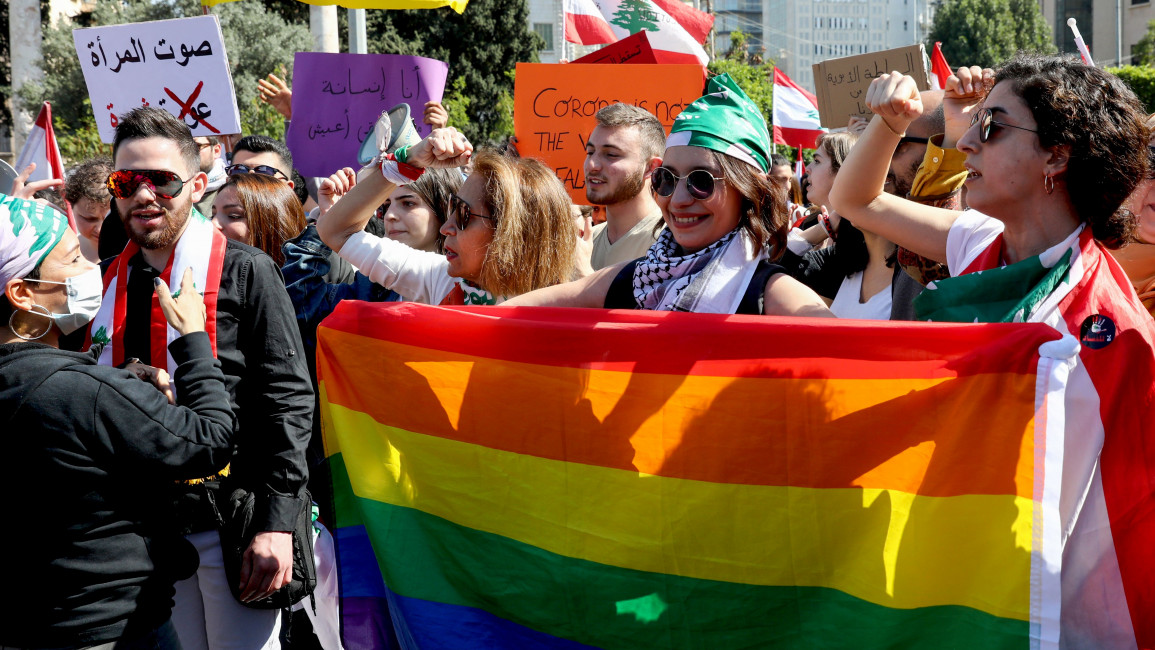Lebanese court blocks ban on LGBTQ+ gatherings
A Lebanese judicial body on Tuesday suspended an order from the Minister of Interior to block LGBTQ+ gatherings in the country, a victory for activists and LGTBQ+ individuals.
The State Council agreed to block the ban after two civil society organisations – Helem and Legal Agenda – challenged the decision in court back in August 2022.
The judicial body has not yet ruled whether or not the Interior Minister's decision was unconstitutional, but agreed to block its implementation until the court could issue a final ruling.
"It was refreshing to see that logic and fact trumped mythologies and politicisation of certain communities by unethical and unscrupulous political leaders," Tarek Zeidan, the executive director of pro-LGBT+ organisation Helem, told The New Arab.
The Minister of Interior, Bassem Mawlawi, issued a blanket ban on any events that promoted what he called "the phenomenon of sexual deviance," in June 2022.
The lawsuit challenging the ban alleged that the order was unconstitutional, and violated freedom of expression, assembly and belief, Ghida Frangieh, a researcher with Legal Agenda, told TNA.
Frangieh added that the ban was an imposition of a certain religious belief on certain groups, which is not allowed in the Lebanese constitution.
While the suspension is a recognition that LGBT+ individuals deserve protection under Lebanese law, legal advocates say that hate speech is still a regular occurrence.
In June, when the Minister of Interior instituted the ban, it was accompanied by a wave of hate speech from local religious leaders and groups against LGBT+ individuals and organisations.
Soon after the ban was put into place, signs appeared on the highways of Lebanon condemning what it deemed "unnatural and perverse" behaviour.
A local extremist Christian group, Soldiers of God, vandalised a pride month display in Beirut and filmed themselves chanting bible verses during the destruction. The group also accused LGBT+ individuals of attempting to change familial and marriage institutions in Lebanon.
"Speeches and rhetoric from members of the religious community have opened Pandora's box. We no longer have to just worry about institutions discriminating against us … we now have to worry about vigilante groups," Zeidan said.
He added that "not a single activist in the LGBT rights movement pushed for marriage equality."
"What we've been asking for for the last two decades is don't throw us in jail … and we want access to healthcare, labour, education and housing," Zeidan said.
In the past, Lebanese judges have issued rulings that gave certain protections to LGBT+ individuals in Lebanon, including recognition of trans identities and non-criminalisation of same-sex relations.
While Lebanese law does not include specific sexual orientation or gender identity protections, its constitution does have a non-discrimination clause.
Lebanese judges have relied on international legal definitions of non-discrimination which include sexual orientation and gender identity to grant protections for LGBT+ individuals.

![A pro-Palestinian encampment at Columbia persists, despite recent arrests. [Brooke Anderson/The New Arab]](/sites/default/files/styles/image_330x185/public/2024-04/417084c8-3251-4705-8422-058fca1d5709.jpg?h=ddb1ad0c&itok=T2cXVfXy)

